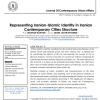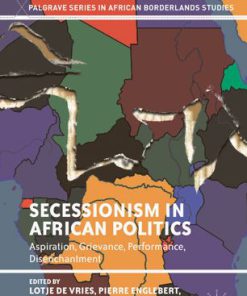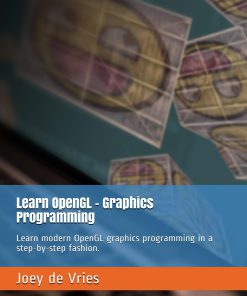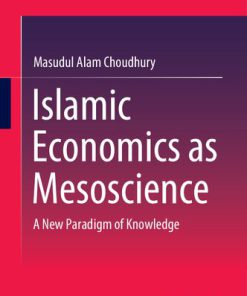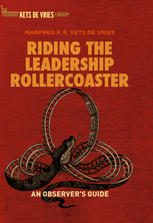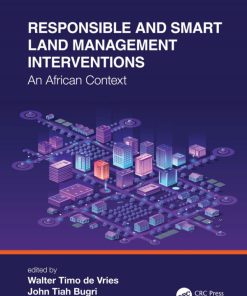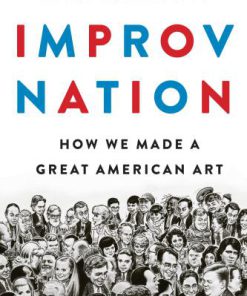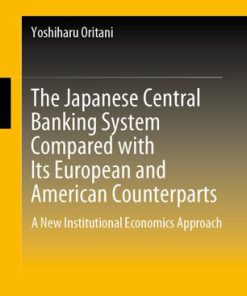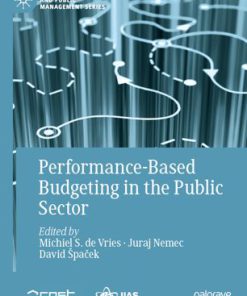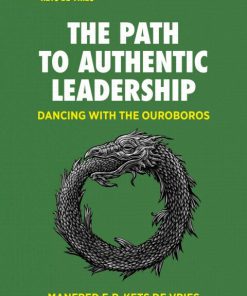New Institutional Economics as Situational Logic 1st Edition by Piet De Vries 1317653639 9781317653639
$50.00 Original price was: $50.00.$25.00Current price is: $25.00.
New Institutional Economics as Situational Logic 1st Edition by Piet De Vries – Ebook PDF Instant Download/Delivery: 1317653639, 9781317653639
Full download New Institutional Economics as Situational Logic 1st Edition after payment
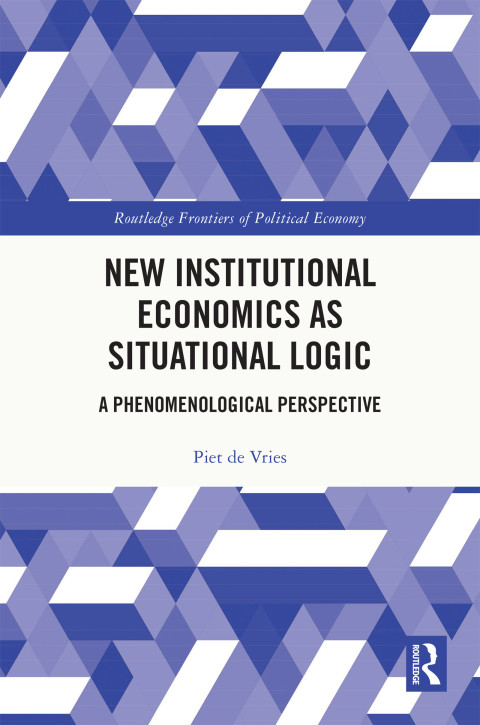
Product details:
ISBN 10: 1317653639
ISBN 13: 9781317653639
Author: Piet De Vries
Drawing on phenomenological and realist approaches, this book surveys the theoretical evolution of new institutional economics. For all its popularity and explanatory power, new institutional economics is not a homogenous field but encompasses a range of different theoretical approaches starting from Coase and the introduction of transaction costs. In particular, the concept of rationality is a rich source of dispute leading to a bifurcation between ‘insider’ and ‘outsider’ perspectives. The insider view refers to studying conscious human beings – the economic actor – who seek their self-interest and find themselves in their mundane situation. The self-interest of the economic actor bestows him with logic. It makes the logic of the situation the method of economics, as Karl Popper establishes. Thus, the book argues for the positioning of new institutional economics as situational logic, that is, an economic theory that formulates and studies single-exit situations that face the economic actor. Ultimately, this book presents a critical appraisal of new institutional economics theories based on a substantiated methodological perspective that effectively navigates the theorist between realism and rigor. This book will be of interest to readers of new institutional economics, economic theory, and the philosophy of economics and social sciences.
New Institutional Economics as Situational Logic 1st table of contents:
1 Economics as analysis of meaning
1.1 Introduction
1.2 From an inside versus an outside perspective
1.3 The outside purview dominates in modern economics
1.4 The inside purview marks institutional economics
1.5 An unremitting Methodenstreit
1.6 Nominalism versus realism
1.7 Realism and meaning in NIE
1.8 The analysis of meaning as the scope of a discipline
1.9 The causal explanation of facts
1.10 Meaning and fact in economics
1.11 Recap
Notes
References
2 Phenomenology and the analysis of meaning
2.1 Introduction
2.2 Consciousness, intersubjectivity, and meaning
2.3 Weber’s fundamental concepts of sociology
2.4 Phenomenological sophistication of Verstehen
2.4.1 Time
2.4.2 Intersubjectivity
2.5 Phenomenological analysis of meaning
2.5.1 Typifying in commonsense thought
2.5.2 The construction of ideal types
2.6 Conclusion
Notes
References
3 Scope and method of economics
3.1 Introduction
3.2 The scope of economics
3.3 The dehomogenizing methods of the Marginal Revolution triumvirate
3.3.1 Walras
3.3.2 Jevons
3.3.3 Menger
3.3.4 Some dehomogenizing conclusions
3.4 Methodological individualism
3.4.1 Method and meaning
3.4.2 Situational logic
3.4.3 Situational logic against inductive rationality, an afterthought
3.5 Conclusion
Notes
References
4 Frank H. Knight, pioneer in NIE
4.1 Introduction
4.2 Knight’s methodological and philosophical preliminaries
4.3 Imperfect competition through risk and uncertainty
4.3.1 Uncertainty and an organization expedient, the enterprise
4.3.2 Entrepreneurial system and progressive change
4.4 Review and conclusions
4.4.1 A philosophical afterthought
4.4.2 An NIE afterthought
Notes
References
5 On Coase
5.1 Introduction
5.2 The nature of the firm
5.3 The marginal cost controversy
5.3.1 Marginal cost pricing as a socialist’s economic calculus
5.3.2 Marginal cost pricing and decreasing average cost
5.3.3 Marginal cost pricing as a controversy
5.4 The problem of social cost
5.4.1 The ‘FCC’ paper
5.4.2 The ‘Social Cost’ paper
5.5 Coase’s methodological point of view
5.6 Coase’s economics from a phenomenological point of view
5.7 Conclusion
Notes
References
6 Theory of the firm
6.1 Introduction
6.2 The existence of the firm
6.3 The firm’s complement: the market
6.4 NIE of organizations
6.4.1 The concept of transaction cost
6.4.2 Further elaboration on Coase’s theory of the firm (1): the hierarchy
6.4.3 Further elaboration on Coase’s theory of the firm (2): the residual claimant
6.4.4 A concluding summary
6.5 Production theory of the firm
6.5.1 Production theory of the firm and some general notions
6.5.2 The competitive firm as a repository of capabilities and competence
6.5.3 Strategic management theory and empirical evidence
6.6 Conclusion: a phenomenological point of view
Notes
References
7 Market and government
7.1 Introduction
7.2 The zero hypothesis of the market mechanism
7.3 Market, government, and allocation
7.4 On property
7.4.1 The origin of property
7.4.2 The nature of property
7.4.3 Property as a bundle of rights in NIE
7.5 Coase on cases of interference
7.6 Comparative institutional arrangements
7.6.1 Pigou versus Coase
7.6.2 A case of welfare trade-off
7.6.3 Presumptive efficiency and benefit
7.6.4 Coase in accord with Pigou
7.6.5 Presumptive efficiency in terms of money
7.7 Comparative institutional analysis applied
7.7.1 British lighthouse history as a specimen
7.7.2 The creation of property rights of emission
7.7.3 Patents and the creation of property rights of invention
Conclusion
7.8 Summary
People also search for New Institutional Economics as Situational Logic 1st:
new institutional economics theory
new institutional economics
new institutionalism example
new institutionalism sociology
a new institute for social research
Tags: New Institutional, Economics, Situational Logic, Piet De Vries
You may also like…
Politics & Government
Computers - Computer Graphics & Design
Politics & Philosophy - Anthropology
Business & Economics
Uncategorized
Politics & Philosophy
Business & Economics - Management & Leadership
The Path to Authentic Leadership: Dancing with the Ouroboros 4th Edition Kets De Vries



